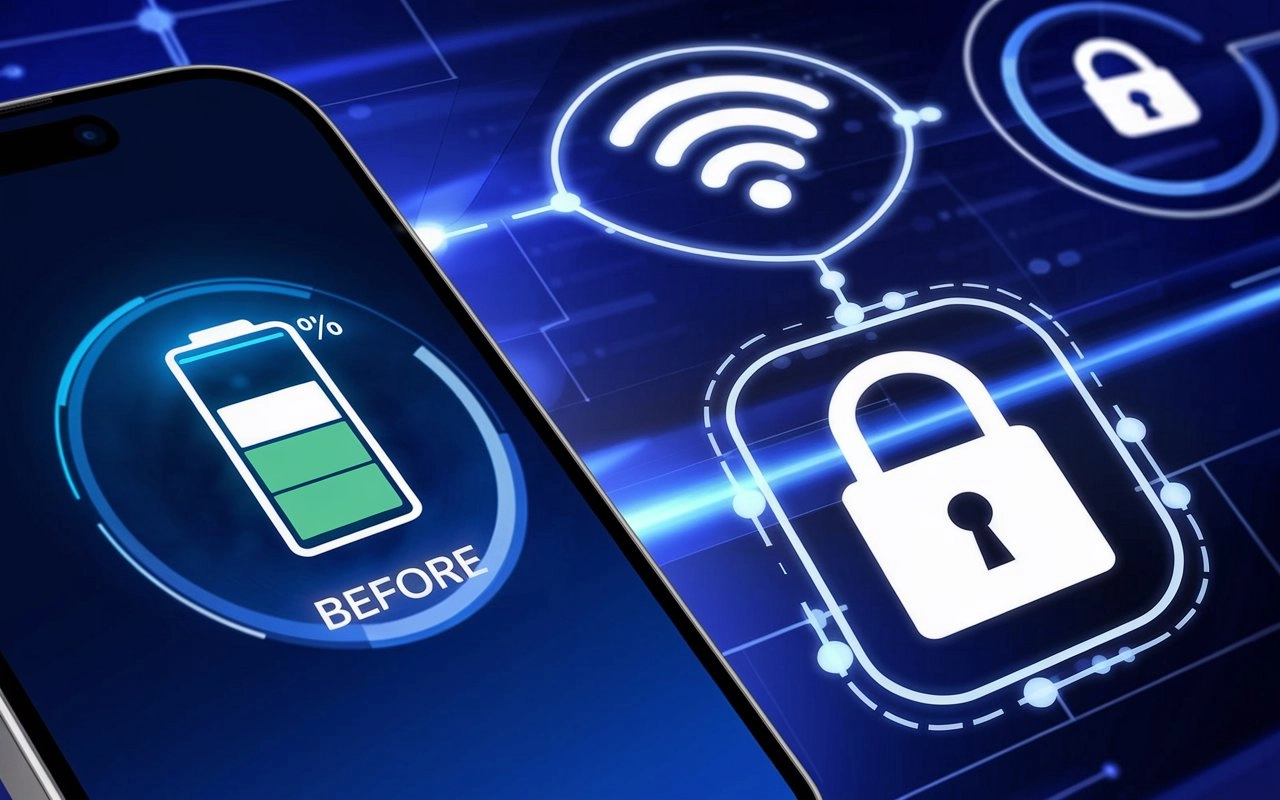Does VPN affect phone battery life?

The modern world is increasingly dependent on mobile devices - for work, communication and entertainment. In the face of growing security threats, many users are starting to use VPN to protect their data and privacy. However, among them, an important question arises: how much does using a VPN affect phone battery life? In this article, we will look at the key factors that affect battery consumption when using a VPN on mobile devices, as well as recommendations for improving performance.
The Main Reasons for Increased Battery Consumption When Using a VPN
A VPN provides a secure and private connection to the Internet by encrypting transmitted data. Despite these functional advantages, using a VPN under certain circumstances can significantly affect the battery life of a mobile device. Let's look at the main reasons that lead to increased battery consumption when using a VPN:
- Additional data processing. Encrypting and decrypting data requires significant computing resources, which increases the load on the phone's processor. The more complex the encryption, the more energy is required to perform it.
- Persistent connection. A VPN constantly maintains a connection to the server, even when the device is in standby mode. This constant connection requires continuous use of the Internet connection, which additionally consumes energy.
- Increased network load. When using a VPN, all Internet traffic from the device passes through a remote server. This can increase latency and, as a result, reduce connection speed, which leads to an increase in data transfer time and additional battery consumption.
- Applications running in the background. Some applications using a VPN continue to run in the background even when they are inactive. This leads to additional use of the processor and network resources, which also affects battery life.
Tips for improving VPN performance and reducing battery consumption
There are several strategies you can use to reduce the impact of a VPN on your phone's battery consumption. These tips will help you optimize your VPN usage and extend your device's battery life:
- Use an energy-efficient protocol. Choosing the right VPN protocol can significantly affect your power consumption. For example, OpenVPN and IKEv2 are considered more energy-efficient protocols than others.
- Disabling VPN when not in use. It is recommended to disable VPN when you don't need it, such as at home or on trusted networks. This will reduce the load on your battery.
- Optimize VPN settings. Some VPN apps allow you to customize encryption and network settings. Choosing the optimal settings can reduce the load on the processor and network.
- Choosing servers with low load. Connecting to servers with high load can increase latency and, accordingly, battery consumption. Choosing servers with lower load will reduce power consumption.
- Monitoring application activity. Regularly monitoring applications running in the background will help identify those that are excessively using resources and consuming battery. Disabling VPN for such applications can significantly extend the battery life of the device.
Using a VPN on mobile devices provides an important level of security and privacy, but can negatively affect battery life. Understanding the factors that affect battery consumption and applying the suggested recommendations will help minimize energy consumption while maintaining all the benefits of a VPN.
Disabling unused apps running through a VPN
To disable unused apps from the VPN connection on Android and exclude their traffic from VPN protection, you can use the "split tunneling" feature. This feature allows you to choose which apps will use the VPN and which will not:
- Open and launch your VPN app on your Android device.
- Go to Settings. Find the settings section inside the app. It is usually marked with a gear icon or can be found in a menu.
- Find the split tunneling option. In the settings, look for a feature related to app management, which may be called “Split Tunneling”, “App Management”, or “Manage apps”. Not all VPN apps support this feature, so make sure your app has this option.
- Select apps. In the split tunneling section, select the apps you want to exclude from the VPN connection. This can often be done by checking or unchecking the boxes next to the app names.
- Save changes. Once you have selected the apps, save your changes. Now these applications will use a regular Internet connection, bypassing the VPN, while other applications will continue to work through the VPN.
If your VPN application does not support split tunneling, consider changing your VPN service to a more functional one that supports this feature.
Private VPN server as a way to optimize network protection
One of the effective solutions for reliable protection of a mobile device on the network is the use of a private VPN server. It not only provides more control over security and privacy settings, but also allows you to optimize the VPN for your individual needs.
On Private VPN server, each user can get detailed information about private VPN servers and buy them.